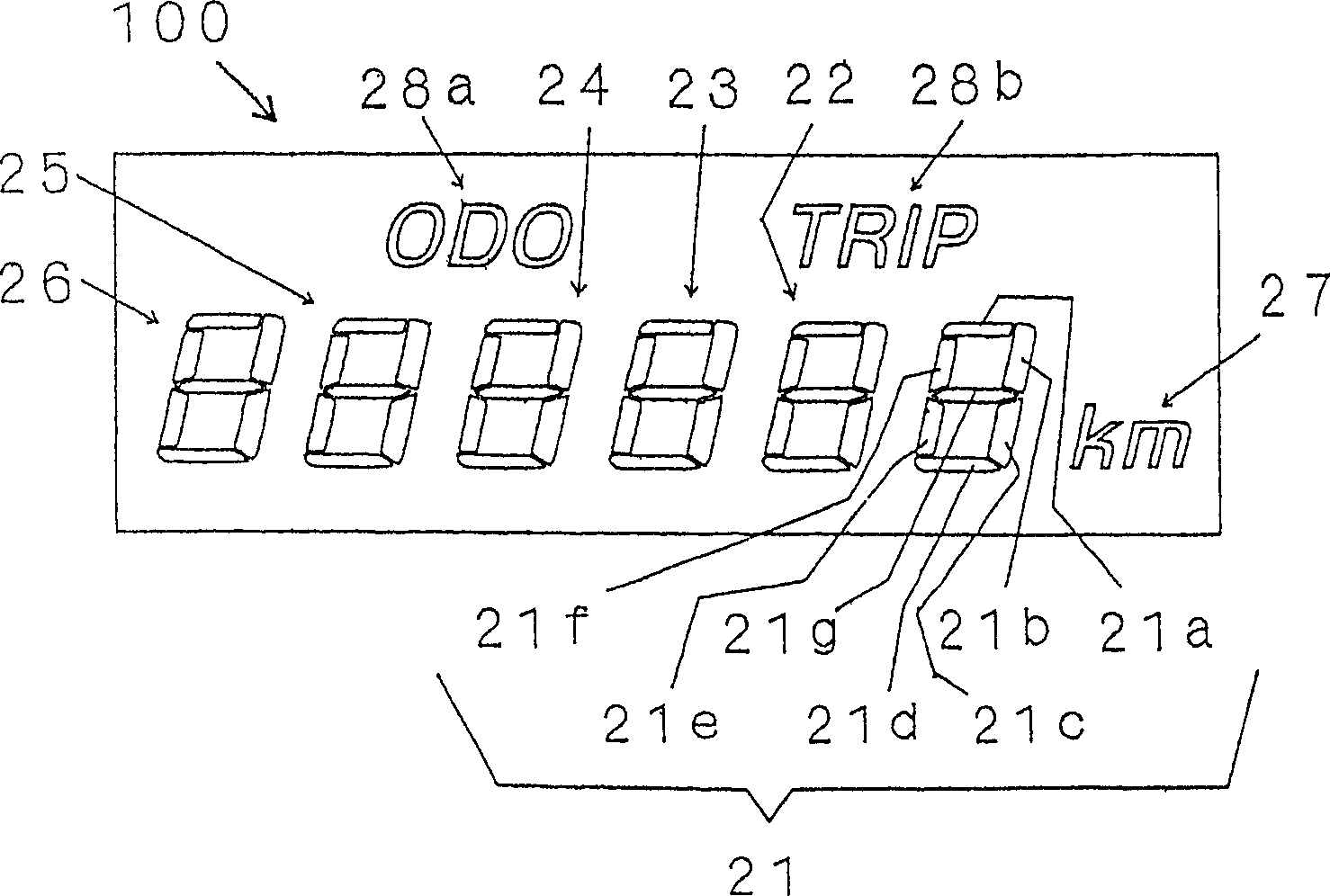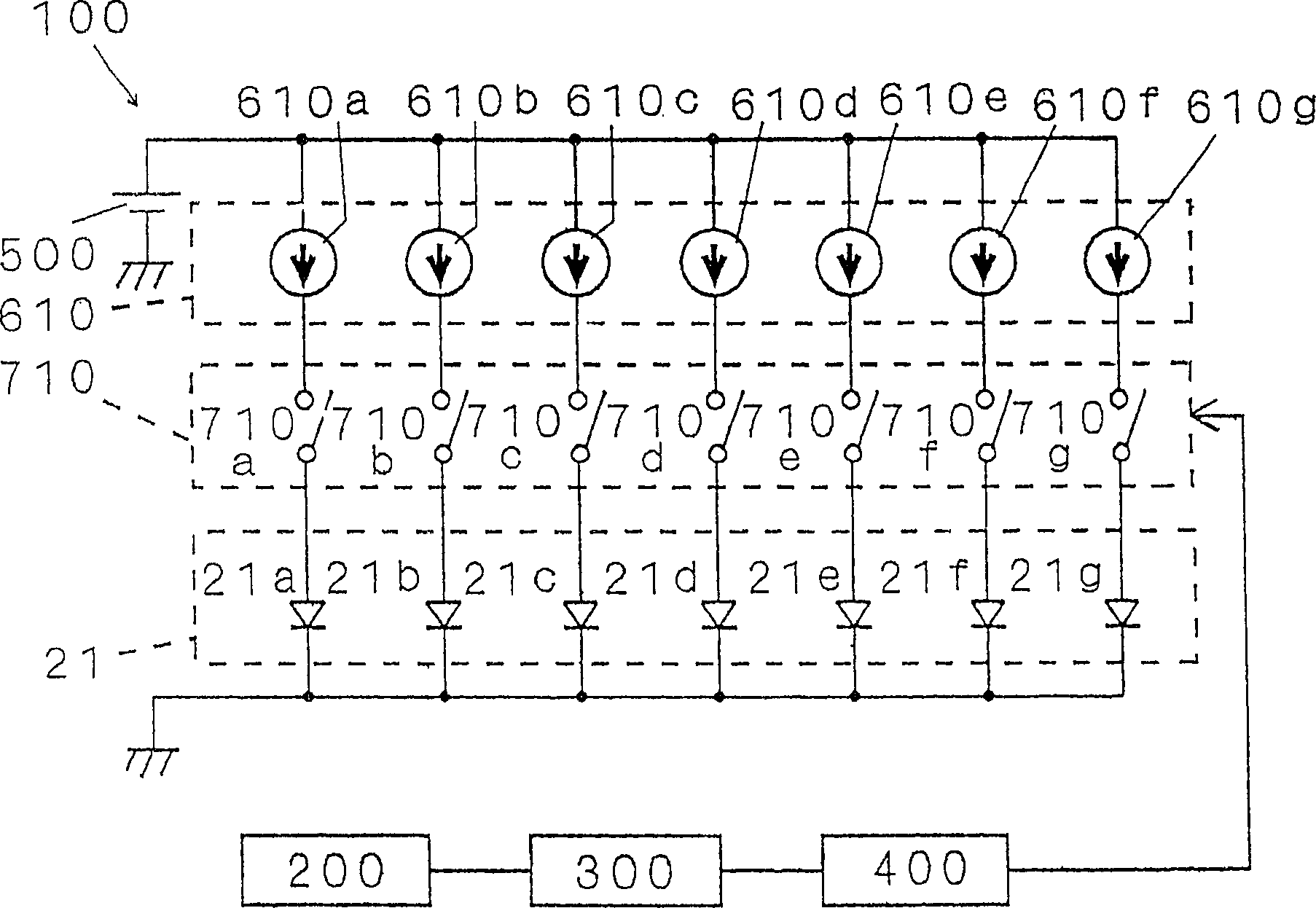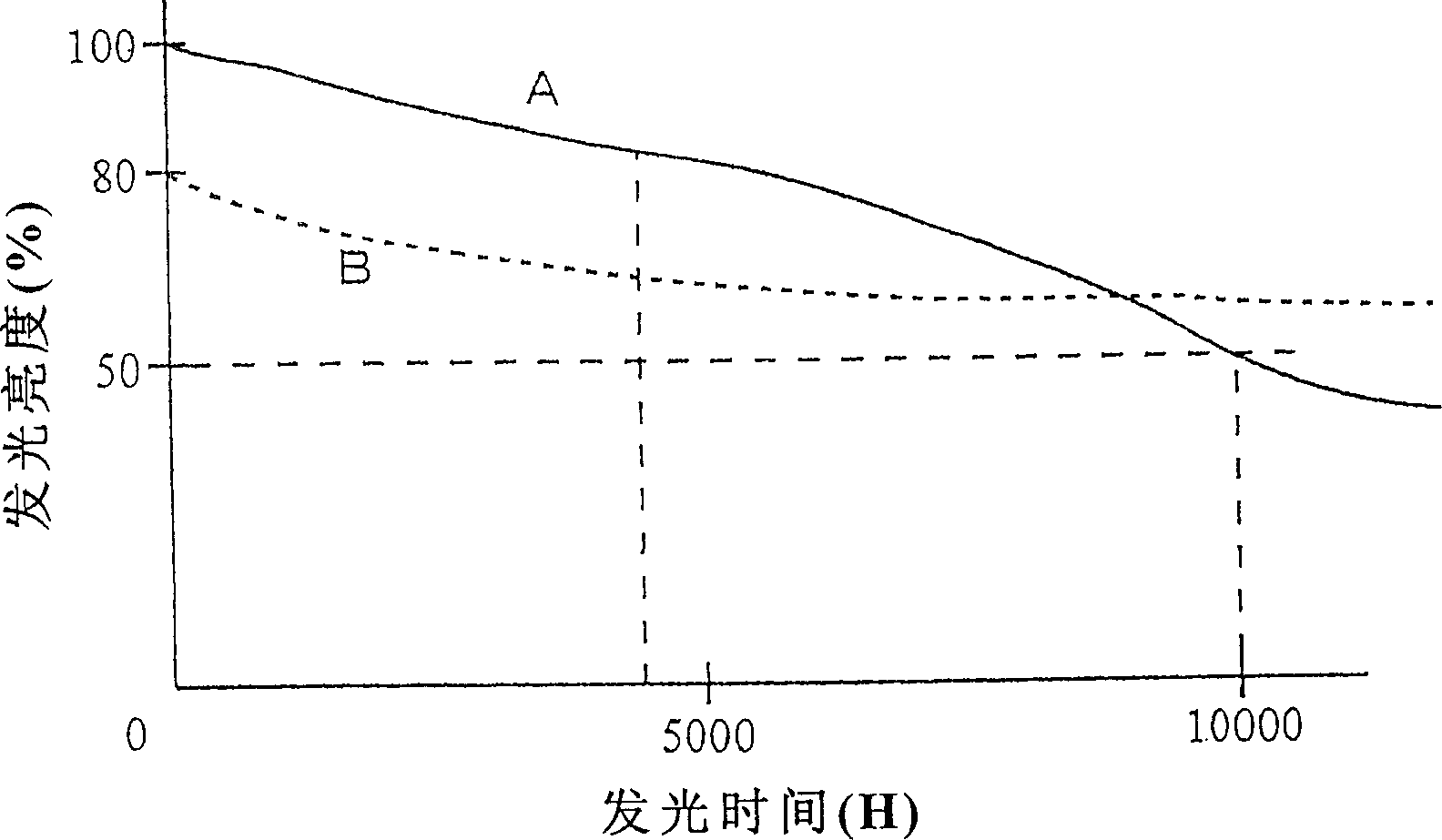Method for reducing brightness difference between different luminous parts in luminous display
A technology of light-emitting display and light-emitting brightness, which can be used in static indicators, instruments, electric solid-state devices, etc., and can solve problems such as short light-emitting time.
- Summary
- Abstract
- Description
- Claims
- Application Information
AI Technical Summary
Problems solved by technology
Method used
Image
Examples
Embodiment Construction
[0026] The present invention will be described below according to the embodiments shown in the accompanying drawings, but the parts that are the same as or corresponding to those in the prior art use the same symbols, and their detailed descriptions are omitted.
[0027] Figure 1~3 Referring to the first embodiment of the present invention, reference numeral 100 represents a light-emitting display of the present invention, which adopts OLED 5 (refer to Figure 5 ) digital travel distance meter with a display for vehicles.
[0028] Cathode 2 (see Figure 5 ) is divided into 6 groups 21-26, which are formed in the following manner. The method is: the group 21 is divided into 7 segments 21a-21g forming the light-emitting parts arranged in the shape of a "day", which are represented in an analog way Arabic numerals "0" to "9" and other groups 22 to 26 are the same, and by arranging a plurality of groups 21 to 26 horizontally, 6 digits can be displayed. In addition, group 21 is l...
PUM
 Login to View More
Login to View More Abstract
Description
Claims
Application Information
 Login to View More
Login to View More - R&D
- Intellectual Property
- Life Sciences
- Materials
- Tech Scout
- Unparalleled Data Quality
- Higher Quality Content
- 60% Fewer Hallucinations
Browse by: Latest US Patents, China's latest patents, Technical Efficacy Thesaurus, Application Domain, Technology Topic, Popular Technical Reports.
© 2025 PatSnap. All rights reserved.Legal|Privacy policy|Modern Slavery Act Transparency Statement|Sitemap|About US| Contact US: help@patsnap.com



